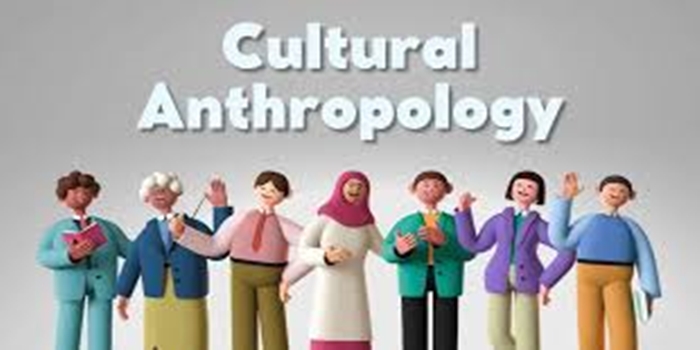In this article, we explained the meaning of cultural anthropology, the features, the concept, the examples and benefits.
Definition
Cultural anthropology is the study of human cultures and societies, examining how people live, organize themselves, and interact. It explores the diverse ways cultures are shaped by history, environment, and social factors. Researchers in cultural anthropology often engage in fieldwork, using methods like participant observation, interviews, and surveys to understand a culture from the perspective of its members.
Features of Cultural Anthropology:
Focus on Culture:
Cultural anthropology examines the broad range of human behavior and thought, including customs, beliefs, social structures, and material objects.
Cross-Cultural Comparison:
This involves comparing and contrasting different cultures to identify similarities and differences in human behavior and social organization.
Cultural Relativism:
This principle suggests that all cultures should be understood within their own context, avoiding ethnocentric judgments.
Participant Observation:
Anthropologists immerse themselves in the cultures they study, actively participating in daily life to gain a deeper understanding.
Ethnography:
This research method involves detailed, in-depth studies of a particular culture, often involving fieldwork.
Study of Language:
Cultural anthropologists investigate the role of language in shaping culture, including how it reflects social structures and cultural beliefs.
Interdisciplinary Approach:
Cultural anthropology draws from other fields like linguistics, sociology, and history to provide a comprehensive understanding of human cultures.
The Concept of Cultural Anthropology:
Culture:
In anthropology, culture is defined as a set of learned behaviors, beliefs, values, and ideas shared by members of a group. It’s not something we are born with, but rather something we learn and adapt to throughout our lives.
Elements:
Cultural anthropology examines a wide range of aspects, including:
Social Structures: Family, kinship, and social hierarchies.
Language and Communication: How people communicate and use language to express their culture.
Belief Systems: Religion, mythology, and worldview.
Material Culture: Objects, technologies, and artifacts that reflect a culture.
Economic Systems: How societies produce, distribute, and consume goods and services.
Political Systems: How societies organize themselves and make decisions.
Methods:
Cultural anthropologists often use various methods, including:
Ethnography: Living among a group of people and observing their culture firsthand.
Participant Observation: Actively engaging in the daily life of the group while observing.
Interviews and Surveys: Collecting data through conversations and questionnaires.
Historical Analysis: Examining historical records and artifacts to understand how cultures have changed over time.
Goals:
Cultural anthropology aims to:
Understand human diversity: By studying different cultures, anthropologists can appreciate the wide range of human experiences and perspectives.
Promote cultural understanding and tolerance: By studying other cultures, we can learn to appreciate and respect different ways of life.
Address social issues: Anthropologists can use their knowledge of culture to address social problems like inequality, discrimination, and conflict.
Here are Some Examples of Cultural Anthropology:
Descriptive anthropology:
Involves in-depth study of a specific culture or community through observation and interaction.
Cultural Relativism:
A framework that encourages understanding cultures on their own terms, without judging them based on one’s own cultural standards.
Language and Communication:
Examining how language shapes culture and how different cultures communicate differently.
Economic Anthropology:
Studying how people provide for their needs, including economic systems, trade, and resource management.
Anthropology of Religion:
Exploring the role of religion in different cultures, including rituals, beliefs, and social hierarchies.
Feminist Anthropology:
Analyzing the role of gender and sexuality in shaping culture and society.
Applied Anthropology:
Using anthropological knowledge to address real-world problems, such as healthcare, education, and development.
Cultural Materialism:
Focusing on how material conditions, like economic and environmental factors, influence cultural development.
Cultural Diffusion:
Studying how cultural traits and practices spread from one group to another.
Practice Theory:
Exploring how individuals and groups create and maintain their cultures through their everyday practices.
Ethnology:
Comparing different cultures to identify similarities and differences in their development and organization.
Studying Educational Systems:
Examining how different cultures approach education.
Comparing Diets:
Investigating differences in food consumption and nutrition across cultures.
Studying Ancient Civilizations:
Analyzing artifacts and sites to understand the technology and social structures of past cultures.
Benefits of Cultural Anthropology:
Enhanced Cultural Understanding:
Cultural anthropology studies diverse human societies, beliefs, and practices, providing insights into different ways of life and promoting a deeper appreciation for cultural diversity.
Improved Interpersonal Skills:
By understanding the cultural contexts of interactions, individuals can develop better communication skills and build stronger relationships across cultures.
Development of Analytical Skills:
Cultural anthropology trains individuals to critically analyze social phenomena, question assumptions, and understand issues from multiple perspectives.
Increased Empathy and Cultural Sensitivity:
Studying different cultures fosters empathy and the ability to understand perspectives different from one’s own, leading to greater cultural awareness and sensitivity.
Preparation for Diverse Work Environments:
In today’s globalized world, cultural sensitivity and awareness are highly valued in many professions, making cultural anthropology a valuable asset for career success.
Broader Perspective on History and Social Issues:
Cultural anthropology provides a holistic perspective on human history and society, helping individuals understand the context and meaning of social events and issues.
Enhanced Problem-Solving Skills:
By considering the cultural and social contexts of problems, individuals can develop more effective and sustainable solutions.
Conclusion
Cultural anthropology, is a main division of anthropology that deals with the study of culture in all of its parts and that uses the methods, concepts, and data of archaeology, descriptive anthropology and ethnology, legends, and dialectology in its descriptions and analyses of the diverse peoples of the world.


